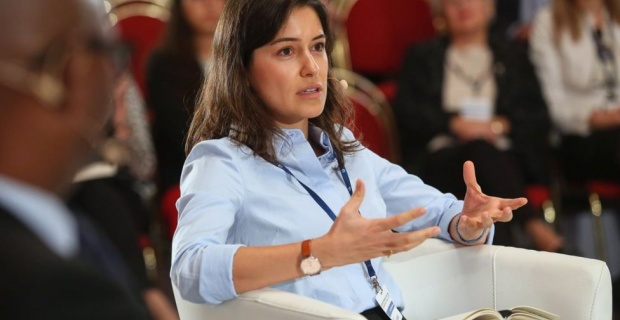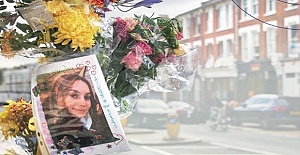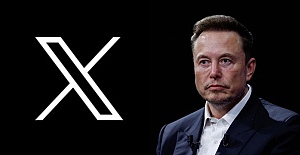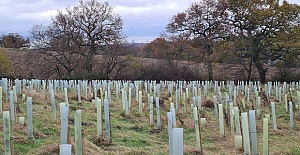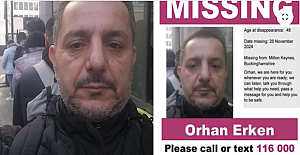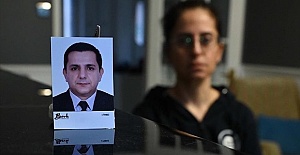The letter - signed by women including former Australian prime minister Julia Gillard, ex-US tennis player Billie Jean King and British actresses Thandiwe Newton and Emma Watson - has been published at the UN Generation Equality Forum.The letter was addressed to the chief executives of Facebook, Google, TikTok and Twitter, and asked them to "urgently prioritise the safety of women on your platforms".
In response, the social media chiefs said that they will commit to improving systems on reporting abuse, and filter what users see and who can interact with them online.
However, some campaigners have expressed concerns that these commitments do not go far enough.
"These abstract statements offer tech companies a good PR opportunity, but these aren't real commitments," says Lucina Di Meco, co-founder of #ShePersisted Global, which tackles online attacks against women.
"They aren't specifically offering to look at content moderation or algorithmic preferences that will reward bad behaviour. So far, we are still putting the burden on women."
The letter reads: "The internet is the town square of the 21st Century. It is where debate takes place, communities are built, products are sold and reputations are made.
"But the scale of online abuse means that, for too many women, these digital town squares are unsafe. This is a threat to progress on gender equality."
Online gaming abuse: 'Men like to guess what I'm wearing'
Online abuse turns women away from public life, says Arlene FosterThe letter also pointed to a 2020 study of more than 4,000 adult women by The Economist Intelligence Unit, which found that 38% of them in 51 countries have had direct experience of online intimidation.
And it also emphasises online abuse is worse for marginalised groups and black, Asian, Latin American and mixed-race women.
"It is really important that we recognise that abuse and harassment against women on social media platforms is widespread, and that it is one of the biggest barriers to gender equality," said Azmina Dhrodia, senior policy manager at the World Wide Web Foundation.
Azerbaijani journalist Arzu Geybulla
Azerbaijani journalist Arzu Geybulla, who took part in the consultations, told the BBC that constant online harassment made her want to leave her career.
She added that she wondered if tech platforms would "ever take trolling and harassment seriously".
TikTok already has a "prompt" that asks people to reconsider the impact of their words before posting a comment which may contain inappropriate or other key words, and Twitter has features to limit the posts people see.
Vijaya Gadde, Twitter's head of legal, public policy, and trust and safety, said: "While we have made recent strides in giving people greater control to manage their safety, we know there is still much work to be done.
"We are committed to addressing this issue and working with industry partners and civil society to build a safer internet."
On Wednesday, Facebook also announced a Women's Safety Hub to centralise its existing resources to deal with online abuse, and a dedicated global Women's Safety Advisory board which they say will monitor and make recommendations on safety.
The commitments are part of a series of announcements made at the UN's Generation Equality Forum in Paris.
The World Wide Web Foundation says it will track the tech companies against the commitments they've made, and report annually on their progress.


 After Nesil Caliskan a by-election will be held in Jubilee ward in Enfield
After Nesil Caliskan a by-election will be held in Jubilee ward in Enfield Publishing the analysis, Labour’s Cllr Ergin Erbil said Everybody in Enfield deserves basic rights
Publishing the analysis, Labour’s Cllr Ergin Erbil said Everybody in Enfield deserves basic rights Gaza-Israel conflict Statement from Cllr Ergin Erbil, Leader of Enfield Council
Gaza-Israel conflict Statement from Cllr Ergin Erbil, Leader of Enfield Council Cllr Ergin Erbil was elected as the new Leader of Enfield Council
Cllr Ergin Erbil was elected as the new Leader of Enfield Council London aging faster than any other UK city, study reveals
London aging faster than any other UK city, study reveals Cold weather health alerts issued ahead of snow
Cold weather health alerts issued ahead of snow London defies weather with spectacular fireworks display to ring in 2025
London defies weather with spectacular fireworks display to ring in 2025 Alim Karaca, who hosted Bill Gates, Jeff Bezos, Trump, talked about Fethiye
Alim Karaca, who hosted Bill Gates, Jeff Bezos, Trump, talked about Fethiye Footballers are celebrating after Enfield Council officially opened a pitch
Footballers are celebrating after Enfield Council officially opened a pitch  Pep Guardiola's Manchester City beaten by Juventus
Pep Guardiola's Manchester City beaten by Juventus Chelsea to meet Arsenal in Sunday's London derby
Chelsea to meet Arsenal in Sunday's London derby Fenerbahce vs Manchester United Predicted line-ups! Jose Mourinho faces former side
Fenerbahce vs Manchester United Predicted line-ups! Jose Mourinho faces former side HMRC DELAYS AGENT SERVICES ACCOUNT APPROVALS
HMRC DELAYS AGENT SERVICES ACCOUNT APPROVALS UK economy had zero growth between July and September
UK economy had zero growth between July and September Shape the future of housing services with The Enfield 500
Shape the future of housing services with The Enfield 500 DOUBLE-CAB PICKUPS TO BE CLASSED AS CARS UNDER NEW HMRC POLICY
DOUBLE-CAB PICKUPS TO BE CLASSED AS CARS UNDER NEW HMRC POLICY





